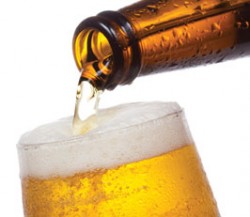 While c-stores in the state can sell cold wine, with a higher alcohol content than beer, they are currently restricted from selling cold beer.
While c-stores in the state can sell cold wine, with a higher alcohol content than beer, they are currently restricted from selling cold beer.
The Indiana Petroleum Marketers and Convenience Store Association (IPCA) and three of its member companies have filed a lawsuit against the State of Indiana for the right to sell cold beer.
The suit was filed this week in the U.S. Federal District Court. The IPCA and member plaintiffs claim that the current law, which forces them to sell beer warm while allowing competitors, namely liquor stores, in the carryout market are allowed to sell beer cold is a violation of the Indiana and U.S. Constitutions. Under current law, convenience, grocery and pharmacy stores are only allowed to sell beer warm.
IPCA and three of its members—Ricker’s, Thorntons and Freedom Express—claim this Indiana law violates the equal protection clause of the U.S. Constitution by restricting convenience, grocery and pharmacy stores to selling beer only at room temperature. In the complaint, the plaintiffs charge that Indiana statutes and regulations have evolved into an irrational and discriminatory regulatory regime that favors one class of retailer over another.
“This lawsuit is about fairness, convenience, and promoting competition for the sale of cold beer in a rational and responsible way so that my members can serve their customers,” said IPCA Executive Director Scot Imus. “We are confident that the court will agree with us that it is not the job of government to pick winners and losers in the marketplace.”
Indiana is the only state in the country that regulates beer sales based on temperature. The current law doesn’t apply to wine products, thus allowing convenience stores to sell these products cold. On average wine products, including wine coolers, contain higher levels of alcohol compared to beer.
Managing Member of Freedom Express Gregory Cobb, who owns three convenience stores in Kosciusko and Marshall Counties, explained that the current law is confusing to his customers who may purchase cold wine but not beer, even though wine products contain approximately double the amount of alcohol.
“Some common sense needs to be applied to Indiana’s alcohol laws, so that Hoosier business owners like myself may provide products, including beer, without ridiculous temperature restrictions to their customers,” said Cobb.
Indiana Excise Police compliance figures show that package liquor stores were 138% more likely to violate Indiana liquor laws between 2007 and 2012 than convenience, grocery and pharmacy stores. Similarly, restaurants and bars, who may also sell refrigerated beer—were 1,376% more likely to violate Indiana liquor law over the same period of time.
“There is no logic with the current law that gives one class of retailer an exclusive right to sell cold beer,” said Imus. “Indiana’s alcohol laws have not always favored one retailer over another and in fact, it was just in the last 50 years that liquor stores were granted the privilege of selling cold beer.”
A look at the history of beer sales in Indiana shows a constantly changing regulatory environment. Coming out of Prohibition, only confectionary stores were allowed to sell cold beer. That practice ended when the General Assembly passed a law prohibiting such sales in 1941. Liquor stores could not sell beer—warm or cold—until 1953, and then, like other retailers, they were forced to sell it warm. A 1963 decision by the unelected three-member Indiana Alcoholic Beverage Commission granted liquor stores in metropolitan areas the right to sell cold beer. These changes were eventually codified into statute in 1979.




